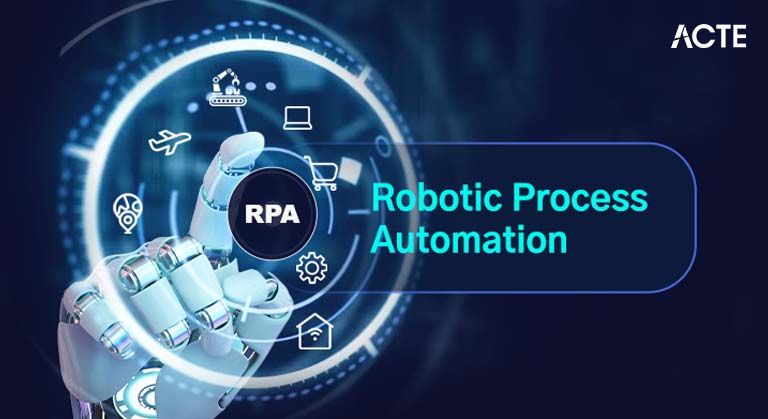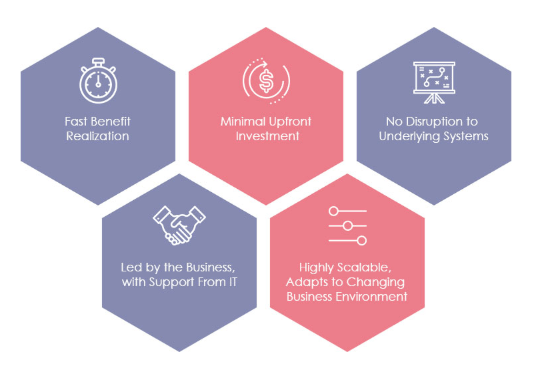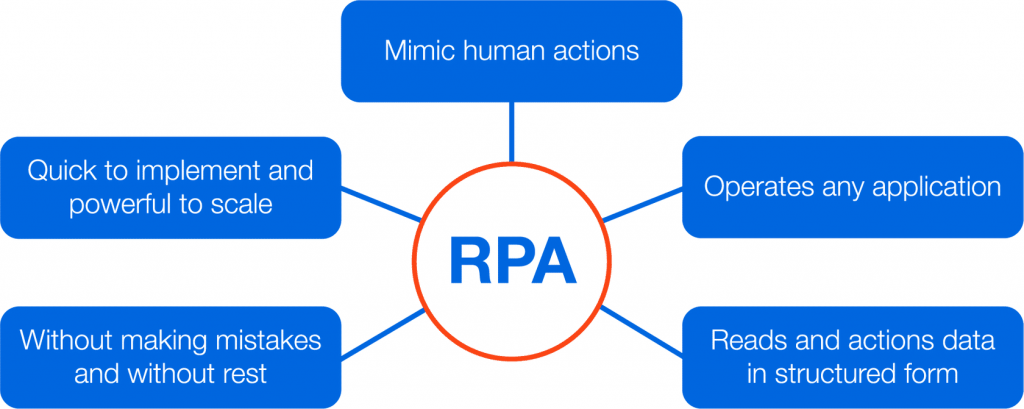
- Introduction to RPA Development
- Role and Responsibilities of an RPA Developer
- Skills Required for an RPA Developer
- Industry Demand for RPA Developers
- Entry-Level vs Experienced RPA Developer Salary
- Salary Trends Across Different Countries
- Certifications That Boost Salary Potential
- Job Roles Related to RPA Development
- Freelance vs Full-Time RPA Developer Salaries
- Future Growth and Career Path
- Top Companies Hiring RPA Developers
- Conclusion
Introduction to RPA Development
Robotic Process Automation (RPA) development involves creating software robots, or bots, designed to automate repetitive, rule-based tasks that were traditionally performed by humans. AI Artificial Intelligence Training tasks can range from simple data entry to more complex business processes like invoicing, report generation, and customer service inquiries. By implementing RPA, businesses can streamline operations, improve accuracy, and significantly reduce the chances of human error, leading to lower operational costs. As a result, RPA has become a rapidly growing field with increasing adoption across industries such as finance, healthcare, manufacturing, and more, helping organizations enhance productivity and achieve digital transformation.
Role and Responsibilities of an RPA Developer
An RPA Developer is responsible for designing, developing, and implementing automation processes. Their tasks generally include:
- Process Analysis: Understanding business processes and identifying opportunities for Automation.
- Bot Design and Development: Writing scripts to automate processes using RPA tools like UiPath, Automation Anywhere, or Blue Prism Developer.
- Testing: RPA Business Analyst Role Explained the bots work efficiently and accurately without causing disruptions.
- Deployment and Maintenance: Deploy RPA solutions into the live environment and maintain them to ensure smooth operations.
- Collaboration: Working with business analysts, project managers, and other stakeholders to refine automation goals and automation solutions.

Skills Required for an RPA Developer
- Technical Skills: Proficiency in RPA tools (e.g., UiPath, Automation Anywhere, Blue Prism Developer). Understanding of programming languages like Python, C#, or Java. Familiarity with database management and SQL. Knowledge of scripting and process automation.
- Soft Skills: Strong problem-solving abilities. Good communication skills to work with business users and other stakeholders. Detail-oriented mindset. Ability to handle multiple projects and meet deadlines.
Ready to Get Certified in Artificial Intelligence ? Explore the Program Now Artificial Intelligence Online Training Offered By ACTE Right Now!
Industry Demand for RPA Developers
The demand for RPA developers has surged as more companies seek to automate their operations. Industries such as finance, healthcare, IT services, manufacturing, and retail are mainly invested in Robotic Process Automation. The need for RPA developers is expected to grow as organizations embrace automation technologies to enhance productivity and reduce operational costs.As automation continues to evolve, the role of RPA developers is becoming increasingly crucial. Companies are recognizing the significant benefits of automating repetitive tasks, which has led to a surge in demand for skilled developers who can design and implement Primary Roles and Responsibilities of RPA Developers . This growing need spans across various industries, including finance, healthcare, IT services, manufacturing, and retail, all of which rely heavily on automation to streamline their processes. The trend is expected to accelerate as organizations seek to not only reduce operational costs but also improve accuracy, compliance, and overall efficiency. Consequently, RPA developers will play a key role in driving digital transformation and shaping the future of business automation.
Entry-Level vs Experienced RPA Developer Salary
- Entry-Level: An entry-level RPA Developer typically earns a salary between $50,000 and $70,000 per year, depending on location and industry. Blue Prism Developers usually have 0-2 years of experience and focus on learning RPA tools and basic automation concepts.
- Experienced: With 3-5 years of experience, process automation can earn between $80,000 and $110,000 annually. They are expected to design complex automation workflows, lead projects, and contribute to strategy development. Senior roles or positions requiring advanced skills may push salaries upwards of $120,000 or more.
To ExploreArtificial Intelligence in Depth, Check Out Our Comprehensive Artificial Intelligence Online Training To Gain Insights From Our Experts!
Salary Trends Across Different Countries
- United States: The average salary for an RPA developer is approximately $85,000 to $120,000 annually. Salaries can be higher in major tech hubs like Silicon Valley or New York.
- United Kingdom: RPA Developer Salary can expect to earn between £40,000 to £70,000 per year.
- India: Entry-level developers in India can earn between ₹4,00,000 to ₹7,00,000 annually, while experienced developers might make ₹10,00,000 or more.
- Australia: RPA developers earn around AUD 80,000 to $120,000 annually.
Certifications That Boost Salary Potential
RPA certifications can significantly increase a developer’s credibility and earning potential. Certified RPA Developer Demonstrates proficiency in using UiPath for RPA development. Blue Prism Developer Certification Aimed at developers using Blue Prism’s RPA platform. Automation Anywhere Certified Advanced Robotic Process Automation Professional certification is for those experienced with AutomationAutomation Anywhere tools. Robotic Process Automation Skills Professional general certification applicable across multiple RPA tools. Holding these certifications can help developers earn a higher salary by making them stand out to employers looking for skilled professionals.

Job Roles Related to RPA Development
Apart from the role of Artificial Intelligence Training, there are other related job titles in the RPA ecosystem, such as:
- RPA Business Analyst: Focuses on analyzing business processes and suggesting automation strategies.
- RPA Solution Architect: Designs end-to-end business automation solutions, integrating multiple systems and tools.
- RPA Project Manager: Oversees RPA projects, ensuring that deadlines and goals are met.
- RPA Tester: Responsible for testing and validating the functionality of automated processes.
Looking to Master Machine Learning? Discover the Artificial Intelligence Expert Masters Program Training Course Available at ACTE Now!
Freelance vs Full-Time RPA Developer Salaries
- Freelance RPA Developer: Freelancers can earn more on a project-by-project basis, depending on their expertise and client base. Hourly rates can range from $40 to $150 per hour, depending on experience, location, and project complexity.
- Full-Time RPA Developer: As mentioned earlier, full-time salaries range between $50,000 and $120,000 annually, and they offer job security and additional benefits (health insurance, paid time off, etc.).
Future Growth and Career Path
The future of RPA development looks promising. As companies adopt automation technologies, the demand for skilled Robotic Process Automation professionals are expected to rise. Transitioning to RPA Architect Design and overseeing complex automation solutions. Project Management larger RPA projects and cross-functional teams. Consulting Offer to organizations looking to implement Robotic Process Automation at scale. AI & Machine Learning Integration Combine RPA with AI and machine learning to create intelligent automation solutions. A* Algorithm in AI opportunities will grow as organizations look to implement RPA at scale. Additionally, integrating AI and Machine Learning with RPA will open new possibilities, enabling businesses to create intelligent automation solutions that can handle more complex, cognitive tasks. This fusion of RPA with AI & ML will enhance automation capabilities, making processes smarter, faster, and more adaptable to changing business needs.
Top Companies Hiring RPA Developers
- Tech Giants: Companies like IBM, Microsoft, and Google are key players in AutomationAutomation and often hire RPA developers.
- Consulting Firms: Accenture, Deloitte, and Capgemini offer RPA development services and hire developers.
- Financial Institutions: Banks such as Artificial Intelligence . Chase and CitiBank invest heavily in RPA to automate internal processes.
- Tech Startups: Many startups focusing on automation and artificial intelligence hire RPA developers to scale their offerings.
Preparing for Artificial Intelligence Job Interviews? Have a Look at Our Blog on Artificial Intelligence Interview Questions and Answers To Ace Your Interview!
Conclusion
The field of RPA development is growing rapidly and offers many career opportunities. RPA developer salary is in high demand across various industries, and the salary potential is substantial, especially for those with relevant certifications and experience. The future of AutomationAutomation looks bright, and with continued advancements in Artificial Intelligence Training and machine learning, process automation will likely play an even more crucial role in shaping business operations worldwide. Whether you pursue a freelance or full-time career, there are plenty of avenues for career growth, making RPA development an attractive career choice for those interested in technology and process optimization.





